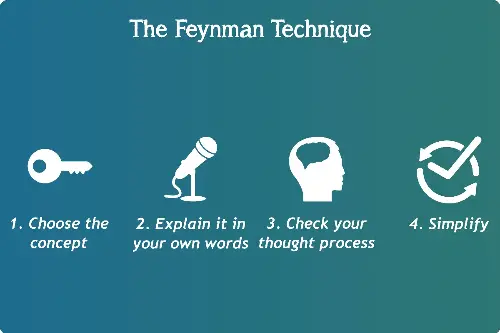Embarking on a quest to enhance memory retention and amplify your learning prowess can feel like embarking on a journey through the labyrinthine corridors of your own mind. Fortunately, science offers us a map and keys to unlock the doors to improved memory and exam success. Here, we explore a treasure trove of scientifically proven techniques that promise to transform your study sessions into a springboard for lifelong learning.

Unleashing the Power of Spaced Repetition
The concept of spaced repetition has long fascinated researchers. It involves reviewing information at intervals that progressively increase over time. This technique leverages the psychological spacing effect to ensure that information is moved from short-term to long-term memory, thereby enhancing both retention and recall abilities. A simple way to implement this is by using flashcards and apps that help space out your study timings.
Mastering the Art of Mindful Meditation
Mindfulness meditation has been shown to significantly boost memory and cognitive function. Regular practice helps to improve focus, reduce anxiety, and increase grey matter density in regions of the brain associated with memory and learning. As little as ten minutes a day can make a huge difference in enhancing your mental clarity and ability to concentrate during study sessions.

Harnessing the Benefits of Sleep
Never underestimate the power of a good night’s sleep when it comes to memory consolidation. During sleep, particularly during the rapid eye movement (REM) phase, our brains are busy categorising and consolidating the day's learning. Aiming for 7-9 hours of quality sleep consistently can dramatically improve memory and cognitive performance.
Incorporating Visual Aids and Mnemonics
By turning information into visual aids like charts, graphs, and mind maps, you create additional routes for your brain to access the information. Similarly, mnemonics – simple associations between easy-to-remember constructs and complex information – are valuable for memorising data. Both techniques encode information in a way that makes it more digestible and memorable.

Nutrition: Fuelling the Brain for Optimal Performance
A diet rich in omega-3 fatty acids, antioxidants, and vitamins has been correlated with better brain health and memory. Foods such as blueberries, salmon, nuts and green leafy vegetables can boost cognitive function and protect the brain from degenerative diseases. Staying hydrated and moderating caffeine and sugar intake are also critical for maintaining mental alertness.
The Feynman Technique: Simplify to Understand
Named after the Nobel Prize-winning physicist Richard Feynman, this technique focuses on teaching a concept you are trying to learn to someone else, in the simplest terms possible. If you struggle to explain it simply, you might not fully understand it. This process exposes gaps in your knowledge and fosters a deeper understanding, reinforcing the memory of the concept.

Physical Activity: Sharpening the Mind through Exercise
Regular exercise not only benefits the body but the brain as well. Cardiovascular activities increase oxygen flow to the brain and promote neurogenesis - the creation of new brain cells. Studies suggest that exercise can improve memory recall and the brain's ability to adapt and grow, even in adulthood.
Strategic Testing: Practise Retrieval for Better Retention
Testing yourself on what you have studied, rather than just passively reviewing the material, can improve memory retention. The effort required to retrieve information assists in the encoding of that information in the brain. Using practice exams or creating your own quizzes are practical ways to implement this strategy.

The Power of Teaching Others
Teaching what you've learned is an effective way to consolidate that information in your own memory. When you anticipate teaching, your brain organises the information in more logical and accessible structures. So find a study buddy, a family member, or even a virtual audience to teach and watch your command of the material improve.
Embrace the Growth Mindset
Believing in your capacity to learn and improve is crucial. The growth mindset, a term championed by psychologist Carol Dweck, revolves around the idea that intelligence is not fixed but can be developed. This perspective encourages resilience in the face of challenges and persistence in learning, maximising the potential for memory improvement and academic success.
Equipped with these scientifically backed techniques, you stand at the edge of significant breakthroughs in your learning journey. Consistent application and dedication to these principles will not only enhance your exam performance but will also equip you with formidable skills for lifelong learning. Remember that transformation doesn't happen overnight; it emerges from daily habits and choices. So incorporate these methods into your daily routine and unlock your true learning power.
